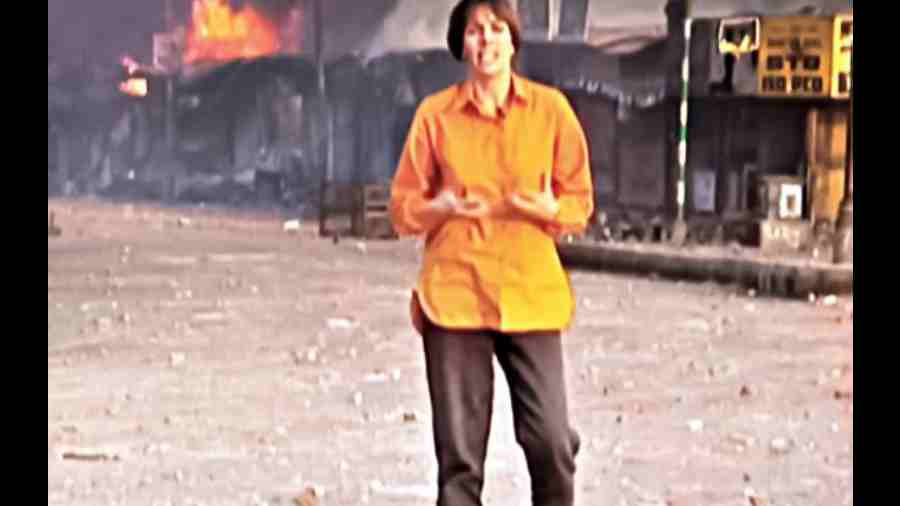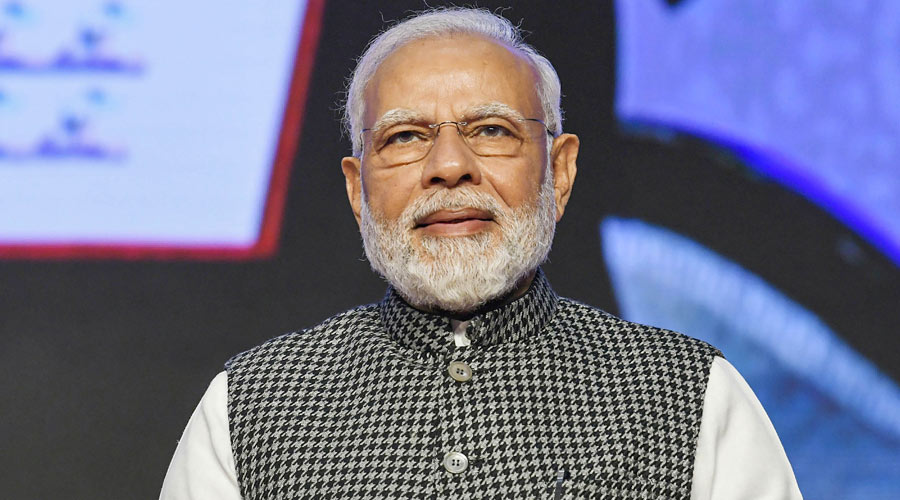The Gujarat riots of 2002 are a “stain” on Narendra Modi, former British foreign secretary Jack Straw has told a two-part documentary, India: The Modi Question, that is being shown on BBC2.
The first part was transmitted on Tuesday, January 17, and the second part will go out next Tuesday, January 24.
Introducing the programme, the BBC told viewers: “The programme contains scenes you may find upsetting.”
It summed up: “This series tells the story of Narendra Modi’s troubled relationship with India’s Muslims.”
During Prime Minister’s Questions on Wednesday, Imran Hussain, the Labour MP for Bradford East, confronted Rishi Sunak: “Last night, the BBC revealed that the Foreign, Commonwealth and Development Office knew the extent of Narendra Modi’s involvement in the Gujarat massacre that paved the way for the persecution of Muslims and other minorities that we see in India today.”
Hussain went on: “Senior diplomats reported that the massacre could not have taken place without the ‘climate of impunity’ created by Modi and that he was, in the FCDO’s words, ‘directly responsible’ for the violence. Given that hundreds were brutally killed and that families across India and the world, including here in the UK, are still without justice, does the Prime Minister agree with his Foreign Office diplomats that Modi was directly responsible? What more does the Foreign Office know about Modi’s involvement in that grave act of ethnic cleansing?”
Rishi brushed the question away: “The UK government’s position on that is clear and longstanding, and it has not changed. Of course, we do not tolerate persecution anywhere, but I am not sure that I agree at all with the characterisation that the Hon. Gentleman has put forward.”
Straw, who was the British foreign secretary under Labour Prime Minister Tony Blair from 2001 to 2006, was asked about the riots by the programme and replied: “I was very worried about it. I was taking a great deal of personal interest, because India is a really important country with whom we have relations. We had to handle it very carefully.” Straw was the Labour MP from 1979 to 2015 for Blackburn, which has a large Pakistani-origin population.
He said: “What we did was to establish an inquiry and have a team go to Gujarat and find out for themselves what had happened. And they produced a very thorough report.”
Straw added: “It was very shocking. These were very serious claims that chief minister Modi had played a pretty active part in pulling back the police and in tacitly encouraging the Hindu extremists.
“That was a particularly egregious example of political involvement, really to prevent the police from doing their job, which was to protect both communities, the Hindu and the Muslims. The options open to us were fairly limited. We were never going to break diplomatic relations with India. But it is obviously a stain on his reputation. There’s no way out of that.”
The BBC said: “The report, sent as a diplomatic cable and marked ‘restricted’, has never been published before.”
The programme highlighted lines from the report: “Extent of violence much greater than reported… widespread and systematic rape of Muslim women…. Violence, politically motivated.... Aim was to purge Muslims from Hindu areas. The systematic campaign of violence has all the hallmarks of ethnic cleansing.”
The BBC said: “The report contained an extraordinary claim.”
This was: “Reliable contacts have told us Narendra Modi met senior police officers on the 27th of February and ordered them not to intervene in the rioting. Police contacts deny this meeting happened.
“There were pretty credible reports he had specifically instructed the police not to intervene. The police contact who we talked to consistently denied that. So we did have conflicting reports on what his direct role had been. But we did feel it was clear there was a culture of impunity that created the environment for the violence to take place. That undoubtedly came from Modi.”
The BBC then interviewed a former senior British diplomat who was “one of the investigators. He is speaking publicly for the first time about what the British inquiry found. He’s asked to remain anonymous.”
He told the programme: “At least 2,000 people were murdered during the violence, the vast majority were Muslim. We described it as a pogrom, a deliberate and politically driven effort targeted at the Muslim community. The violence was widely reported to have been organised by an extremist Hindu nationalist group, the VHP, who have a relationship with the RSS.
“The VHP and its allies could not have inflicted so much damage without the climate of impunity created by the state government. Narendra Modi is directly responsible.” Modi has been given a clean chit by the Supreme Court of India.
The Telegraph asked the UK foreign office to see the full report.
Its existence was not denied but in response, the foreign office sent this newspaper a statement: “The violence in Gujarat in 2002 was tragic. It is a reminder of the need to continually work for respect and harmony between religious communities.
It is right that we remember the victims of the violence in Gujarat in 2002, and their families, and that we reaffirm our commitment to do all we can to foster inter-communal understanding and respect around the world.
“Where events involve British nationals, we naturally have an interest both in the provision of consular assistance and in trying to ascertain what happened through police and diplomacy.”
Three British nationals from Yorkshire — Imran and Shakil Dawood, and Mohammed Aswat — were killed by rioters when they crossed into Gujarat from a trip to the Taj. A survivor, who was 18 at the time, was interviewed for the programme.
The BBC set out what was covered in part one: “Narendra Modi is the leader of the world’s largest democracy, a man who has been elected twice as India’s Prime Minister and is widely seen as the most powerful politician of his generation. Seen by the West as an important bulwark against Chinese domination of Asia, he has been courted as a key ally by both the US and the UK.
“Yet Narendra Modi’s premiership has been dogged by persistent allegations about the attitude of his government towards India’s Muslim population. This series investigates the truth behind these allegations and examines Modi’s backstory to explore other questions about his politics when it comes to India’s largest religious minority.
“This episode tracks Narendra Modi’s first steps into politics, including and his association with the Right-wing Hindu organisation Rashtriya Swayamsevak Sangh, his rise through the ranks of the Bharatiya Janata Party, and his appointment as chief minister of the state of Gujarat, where his response to a series of riots in 2002 remains a source of controversy.”
It said of the sequel: “The second episode examines the track record of Narendra Modi’s government following his re-election in 2019.
“A series of controversial policies — the removal of Kashmir’s special status guaranteed under Article 370 of the Indian Constitution and a citizenship law that many said treated Muslims unfairly — has been accompanied by reports of violent attacks on Muslims by Hindus.
“Modi and his government reject any suggestion that their policies reflect any prejudice towards Muslims, but these policies have been repeatedly criticised by human rights organisations such as Amnesty International.
“That organisation has now closed its offices in Delhi following the freezing of its bank accounts in connection with an investigation into financial irregularities, according to the Indian government, a charge rejected by Amnesty.
“It was into this simmering discontent that Modi decided in the summer of 2003 that he would immerse himself with a visit to the UK at the invitation of the Gujarati Hindu diaspora.”
One man who did defend Modi is the columnist and Rajya Sabha member Swapan Dasgupta who told the BBC: “Agenda was to destroy Narendra Modi politically — the agenda was explicitly political.”
He also pointed out — as did the programme — that Modi was cleared by the Supreme Court: “The Supreme Court gave a judgment (which) actually brought the whole matter to a closure — the closure was necessary.”
The programme included a brief excerpt from an old interview Modi gave to Jill McGivering in which he dismissed the allegations against him: “I’m not agree(ing) with your analysis, I’m not agreeing with your information. This (is) absolutely misguided information to you, from where you have pick(ed) up this type of garbage I do not know.”
He told her: “Don’t please try to preach us the human rights. We know what the human rights are. You Britishers should not preach us human rights.”











